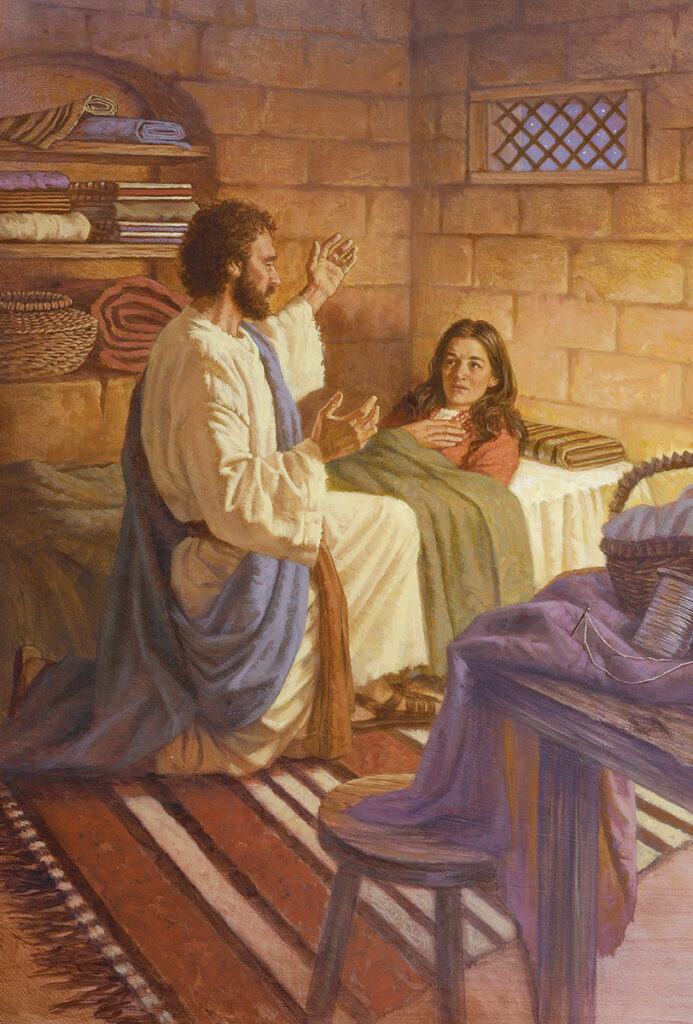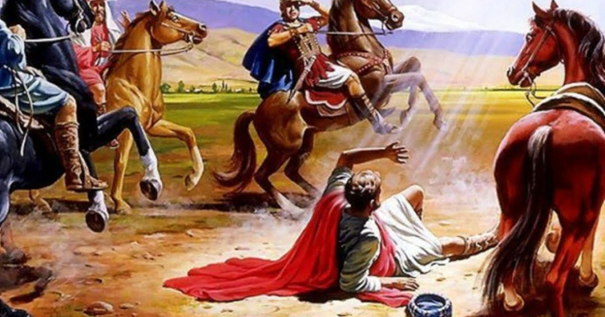To accompany your Come Follow Me study for July 10-16
In addition to reading the indicated chapters, you may wish to:
Read the applicable portions of the New Testament Institute Student Manual at
See the following videos:
- Come Follow Me (July 10-16) | Mighty Missionaries | Acts 6-9 at Come Follow Me (July 10-16) | Mighty Missionaries | Acts 6-9 – YouTube
- The Martyrdom of Stephen at The Martyrdom of Stephen – YouTube
- The Road to Damascus at The Road to Damascus – Saul Takes his Journey – YouTube
- Acts of the Apostles (minute 33:43-1:01:44) at https://www.youtube.com/watch?v=q5bTIUrUw0M
If you would like a Kahoot game related to this material which you could use for personal study or use with your family or your class, click here. https://create.kahoot.it/share/acts-6-9/801acd9f-bf5d-4925-b857-82052535186d. (To use it with a group, after clicking on this link, you will need to log into Kahoot, creating a free account if you have not done so previously, then click on the blue “Start” button.)
Points to Ponder in Acts 6-9
1. What passages in Acts 6-9 could be especially useful to Latter-day Saint missionaries, and how?

2. What principles were taught by the apostles’ approach to the problem of unequal distribution of food to the widows? (Acts 6:1‑6)
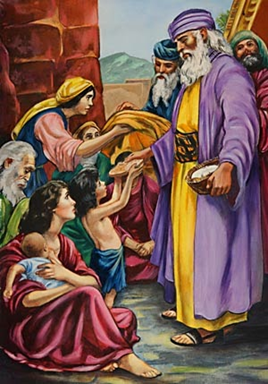
3. What facts did Stephen include in his recital of Old Testament events which are not found in our Old Testament? What is the significance of Stephen’s additions? (Acts 7)
4. What did Stephen say that made the Jewish leaders so angry? [7:51-53]. Didn’t he know that he was putting his life in danger by being so outspoken?
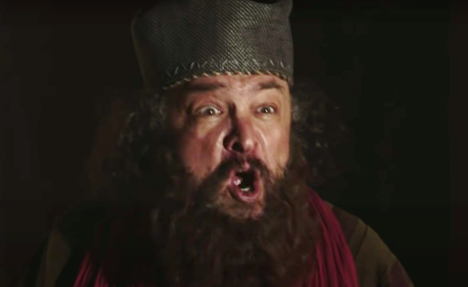
5. How did the “great persecution against the church” (8:1) cause the church to grow rather than shrink?
6. What is your mental image of Paul? How does it differ from Joseph Smith’s description, as given in the Institute student manual? How would Joseph Smith have known what Paul looked like, anyway?
7. How can you justify Jesus’ appearance to Saul and his subsequent elevation to the apostleship when he had been an accomplice to murder and an anti-Christian of the worst kind, while you, who are an active and faithful Church member have most likely never had a comparable vision and will probably never be an apostle?
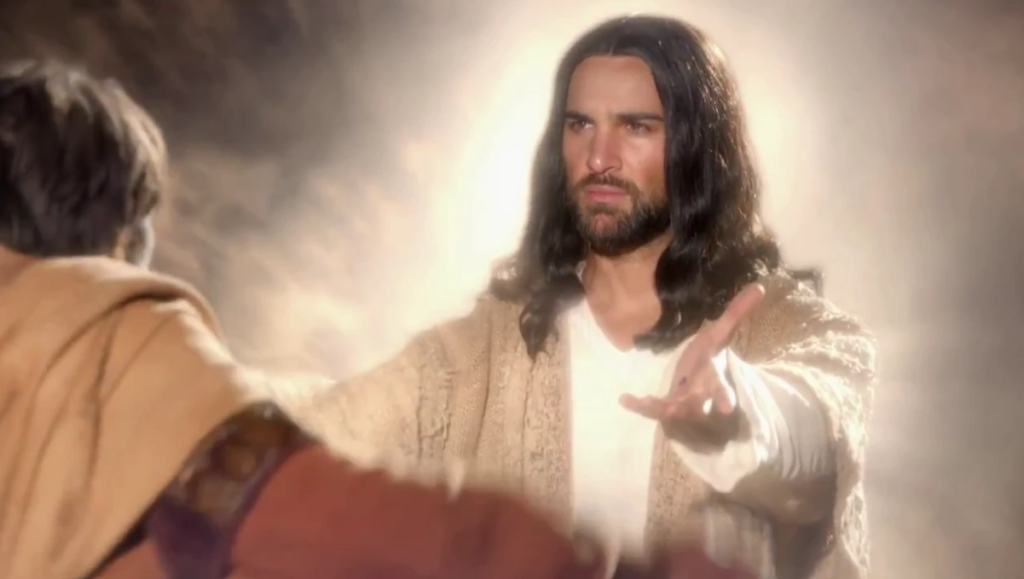
8. What is the significance of the contradiction between Acts 9:7 and 22:9? Which account do you believe was the more accurate? Why?
9. Why was it necessary for Ananias to be involved with Saul’s conversion? What gospel principles are illustrated by this episode?
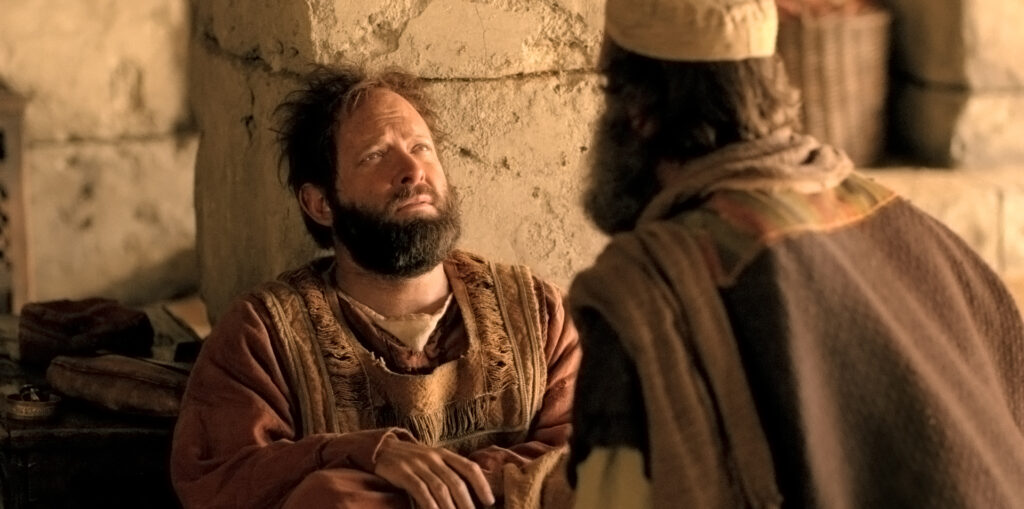
10. What is meant by “kicking against the pricks”? (9:5) What examples of that do you see today?
11. What other feelings or insights did you experience as you read which you feel are worth mentioning?
Possible Answers to Points to Ponder in Acts 6-9
1. What passages in Acts 6-9 could be especially useful to Latter-day Saint missionaries, and how?
- 6:8: “Great wonders and miracles” will accompany the Lord’s servants.
- 6:10: Missionaries with wisdom and the Spirit can confound the worldly wise.
- 7:38: Even in Old Testament times God had a “church,” or formal organization, with living prophets to guide the people.
- 7:55-56: Stephen had a vision similar to Joseph Smith’s, with Jesus on the right hand of God. It is clear from this that the Father and the Son are two different personages, and that it is possible for mortals to see them under certain circumstances.
- 8:12—Evidently only men and women were baptized, not children.
- 8:17—The Holy Ghost is communicated by the laying on of hands by those with divine authority.
- 8:26-29: Missionaries need to be sensitive to promptings of the Spirit about where to go and whom to contact.
- 8:35: Missionaries should use the scriptures in their teaching.
- 8:38—Baptism is properly done by immersion, or Philip would not have felt the need to go down into the water with the baptismal candidate.
2. What principles were taught by the apostles’ approach to the problem of unequal distribution of food to the widows? (Acts 6:1‑6)
- It is important for Church leaders to delegate authority and responsibility to others, both for their own sake and for the sake of those who will grow from such opportunities to serve. I remember being told of a stake president whom a visiting authority found personally setting up the chairs for their stake conference rather than being on time to a scheduled meeting with the general authority. Reportedly, the visiting authority released the stake president for that very reason at that conference.
- Those to whom authority and responsibility is delegated need to
- Have a good reputation (6:3)Be full of the Holy Ghost (6:3)Be wise (6:3)Be full of faith (6:5)
- Be set apart by those in authority (6:6)
3. What facts did Stephen include in his recital of Old Testament events which are not found in our Old Testament? What is the significance of Stephen’s additions? (Acts 7)

He told his accusers that:
- Moses was “exceedingly fair” (7:20) and “was learned in all the wisdom of the Egyptians, and was mighty in words and in deeds.” (7:22.) This made Moses more of a symbol of Jesus Christ, in his voluntarily descending from a place of comfort and privilege to save his people.
- Moses was 40 years old when he went to “visit his brethren the children of Israel” and smote an Egyptian who was oppressing one of them, necessitating his fleeing to Midian. (7:23-29.) We thus learn that 40 years separated each of the notable milestones in Moses’ life, as he was 80 when God appeared to him at the burning bush and 120 at the end of the Israelites’ wandering in the wilderness and when his mortal life came to an end.
4. What did Stephen say that made the Jewish leaders so angry? [7:51-53]. Didn’t he know that he was putting his life in danger by being so outspoken?
He told them that just like their forefathers, they did “always resist the Holy Ghost” (7:51), that they were betrayers and murderers of the Just One (7:52), and that they had not kept the law given through Moses (7:53.) As Stephen was “a man full of faith and of the Holy Ghost,” he likely knew full well what the outcome could be of his boldness. But he was interested in obeying God, not in being liked by the wicked.
5. How did the “great persecution against the church” (8:1) cause the church to grow rather than shrink?
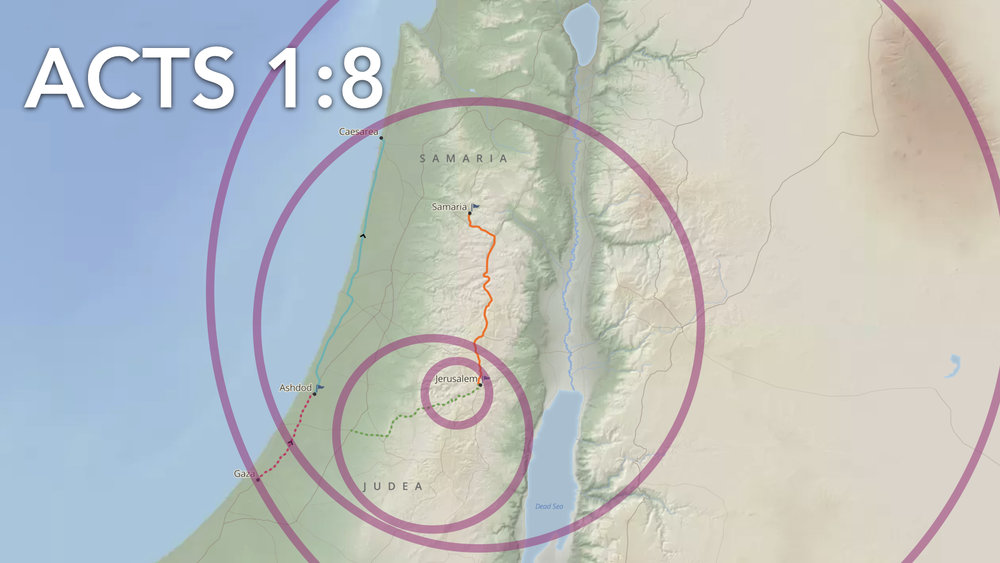
It caused the members, with the exception of the apostles, to scatter throughout all the “the regions of Judaea and Samaria,” where they could then preach the gospel to those who had not yet heard it.
6. What is your mental image of Paul? How does it differ from Joseph Smith’s description, as given in the Institute student manual? How would Joseph Smith have known what Paul looked like, anyway?
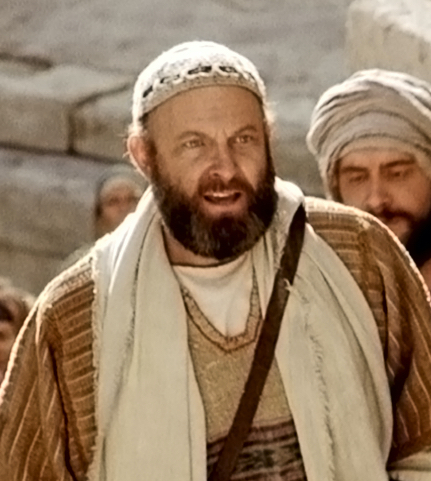
Your choice. Most of us would intuitively have supposed Paul was physically strong, large in stature, and had a powerful and commanding voice. We would have been surprised to read Joseph Smith’s description of him: “He [the Apostle Paul] is about five feet high; very dark hair; dark complexion; dark skin; large Roman nose; sharp face; small black eyes, penetrating as eternity; round shoulders; a whining voice, except when elevated, and then it almost resembles the roaring of a lion. He was a good orator” (in “Extracts from William Clayton’s Private Book,” p. 4, Journals of L. John Nuttall, 1857–1904, L. Tom Perry Special Collections, Brigham Young University; copy in Church History Library). Joseph Smith never elaborated on his source for this fascinating description, but it would appear that Paul must have been among the ancient prophets and apostles whom Joseph Smith was permitted to see and on occasion receive as visitors.
7. How can you justify Jesus’ appearance to Saul and his subsequent elevation to the apostleship when he had been an accomplice to murder and an anti-Christian of the worst kind, while you, who are an active and faithful Church member have most likely never had a comparable vision and will probably never be an apostle?
Presumably, Paul had been foreordained in the premortal life to his earthly call and the Lord knew he had the strength of character to do well with it. We assume Paul was sincere in his anti-Christian activities but needed only to be shown the right path to be as ardent a promoter of Christianity as he had once been an opponent of it. He might be compared to a great football running back who is temporarily disoriented and running with all his might toward the wrong goal line. But if tackled and reoriented, he can run just as energetically in the right direction on succeeding plays.
8. What is the significance of the contradiction between Acts 9:7 and 22:9? Which account do you believe was the more accurate? Why?
Rather than use logic or speculation on this question, we can simply defer to Joseph Smith, who corrected Acts 9:7 to read: “And they who were journeying with him saw indeed the light, and were afraid; but they heard not the voice of him who spake to him.” This is another great pair of passages to show that the Bible as it now stands has mortal errors in it, and that our 8th Article of Faith is correct in proclaiming that we believe the Bible to be the word of God so far as it is translated [or transmitted] correctly. It also shows the value of a living prophet to properly interpret what previous prophets have said.
9. Why was it necessary for Ananias to be involved with Saul’s conversion? What gospel principles are illustrated by this episode?
Ananias was the presiding local church authority in Damascus, and the Lord taught Saul a lesson in Church administration by having him go through Ananias to receive the healing and baptism he sought.
10. What is meant by “kicking against the pricks”? (9:5) What examples of that do you see today?
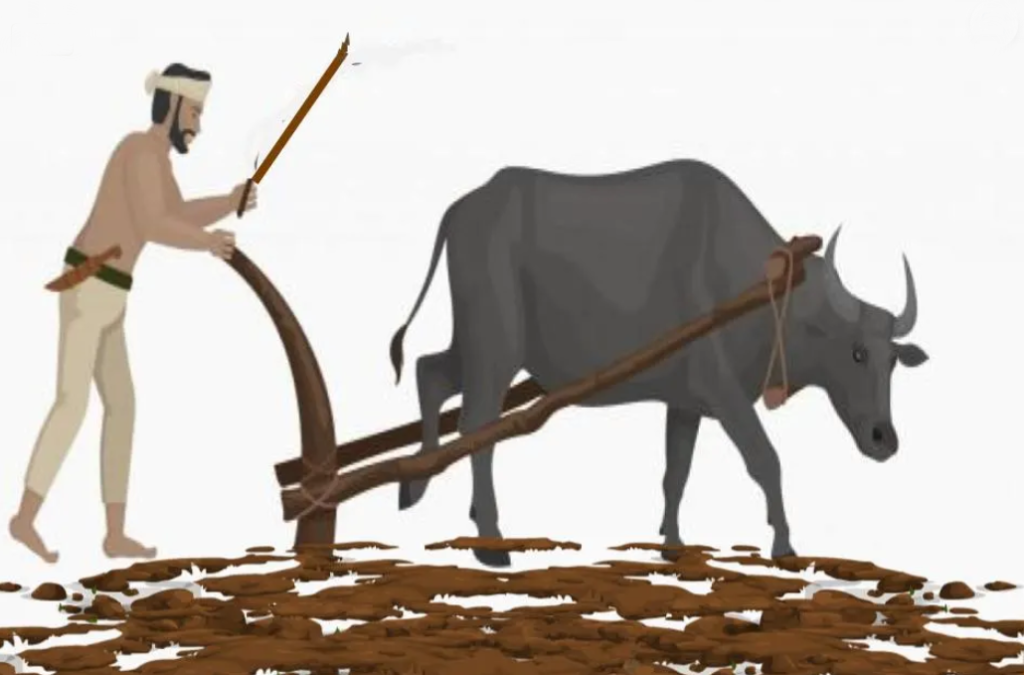
The Institute student manual explains: “A ‘prick’ refers to a goad, which is a sharp spear or stick used to poke animals to make them move ahead. Rather than move forward, stubborn animals sometimes kick back to retaliate, literally kicking ‘against the pricks.’ Such a reaction only adds distress as the animal incurs more painful prompting from its master.” Occasionally we see members who become offended by a priesthood leader and vow never to set foot in the chapel again as long as so and so is the bishop, but they hurt themselves much more than they hurt the bishop by such an attitude. Others may decide they are angry with God Himself because He didn’t answer their prayers exactly as they had hoped, and so decide to stop living the gospel or praying at all. God, obviously, is saddened but not harmed by such a position, but the embittered child suffers even worse than the ox kicking against the pricks.
11. What other feelings or insights did you experience as you read which you feel are worth mentioning?
Your choice. My list includes:
- 6:15: Stephen’s face glows like the face of an angel, as did Moses’ face when he came down from Mt. Sinai.
- 7:45: Looking up the footnote, we find that this “Jesus” was not the Savior, but was Joshua, Moses’ successor.
- 7:60: Stephen forgave those who stoned him, much as Jesus did His crucifiers.
- 8:5-14: It is impressive that Philip enjoyed the ministry of angels, personal revelation, and performed miracles, including casting out devils and healing the sick and lame, with only the Aaronic Priesthood, since he baptized but evidently had to wait for Peter and John to come to confirm the new converts and bestow the gift of the Holy Ghost.
- 8:8: Great joy accompanies the gospel and its gifts.
- 8:30-31: This is a great description of the role of a gospel teacher in an ideal classroom setting—to serve as a “guide” to those interested in learning. The eunuch, like many of us, couldn’t understand Isaiah without help. But the true role of the teacher is to guide, not to pontificate, moralize, or presume to coerce the uninterested.
- 9:40-41: Peter finds the reality of Jesus’ promise that Jesus’ disciples could do the same works He did, as he is the instrument in raising Tabitha from the dead. And just as he had done with the lame man in Acts 3, he offers Tabitha his hand to raise her up.
